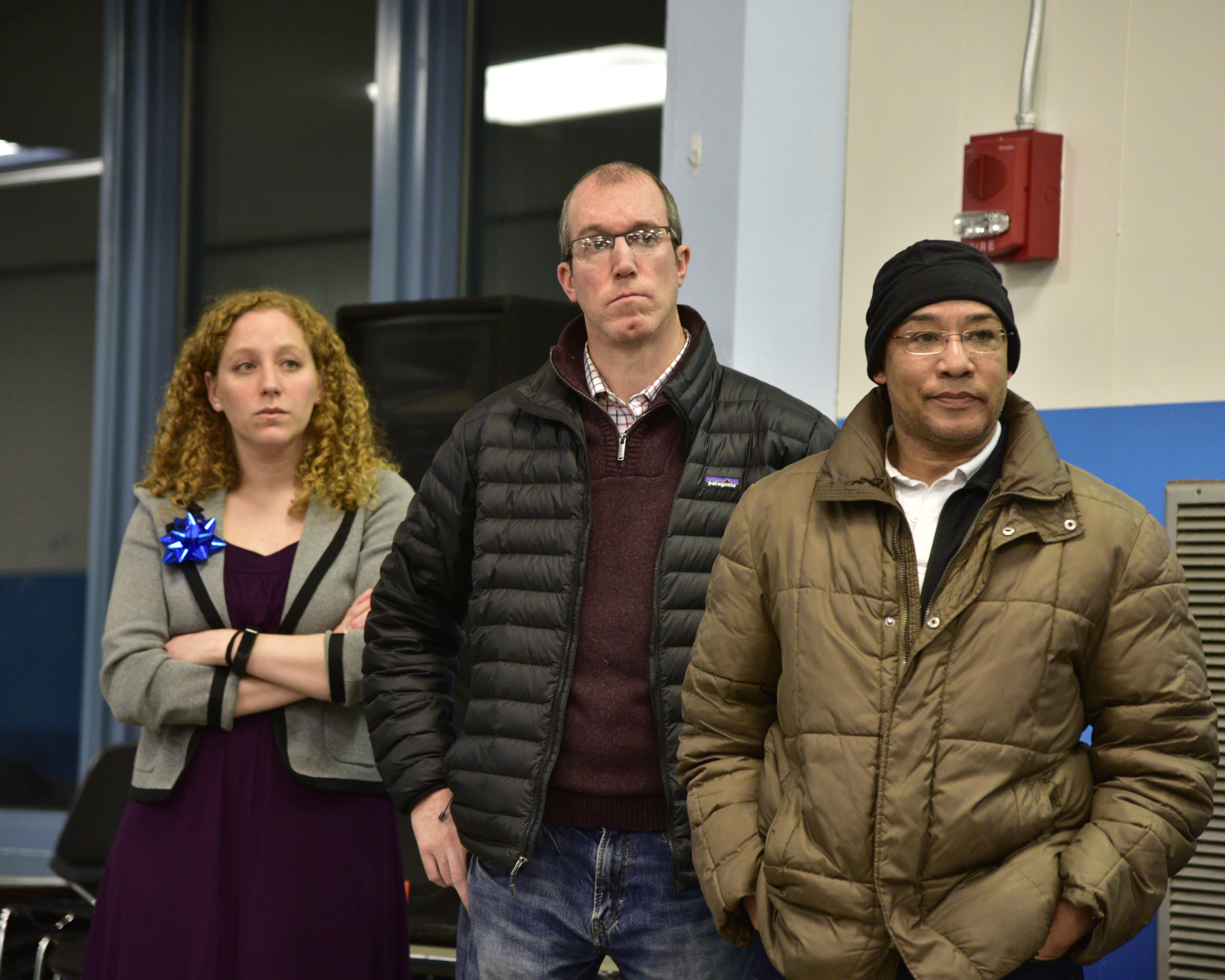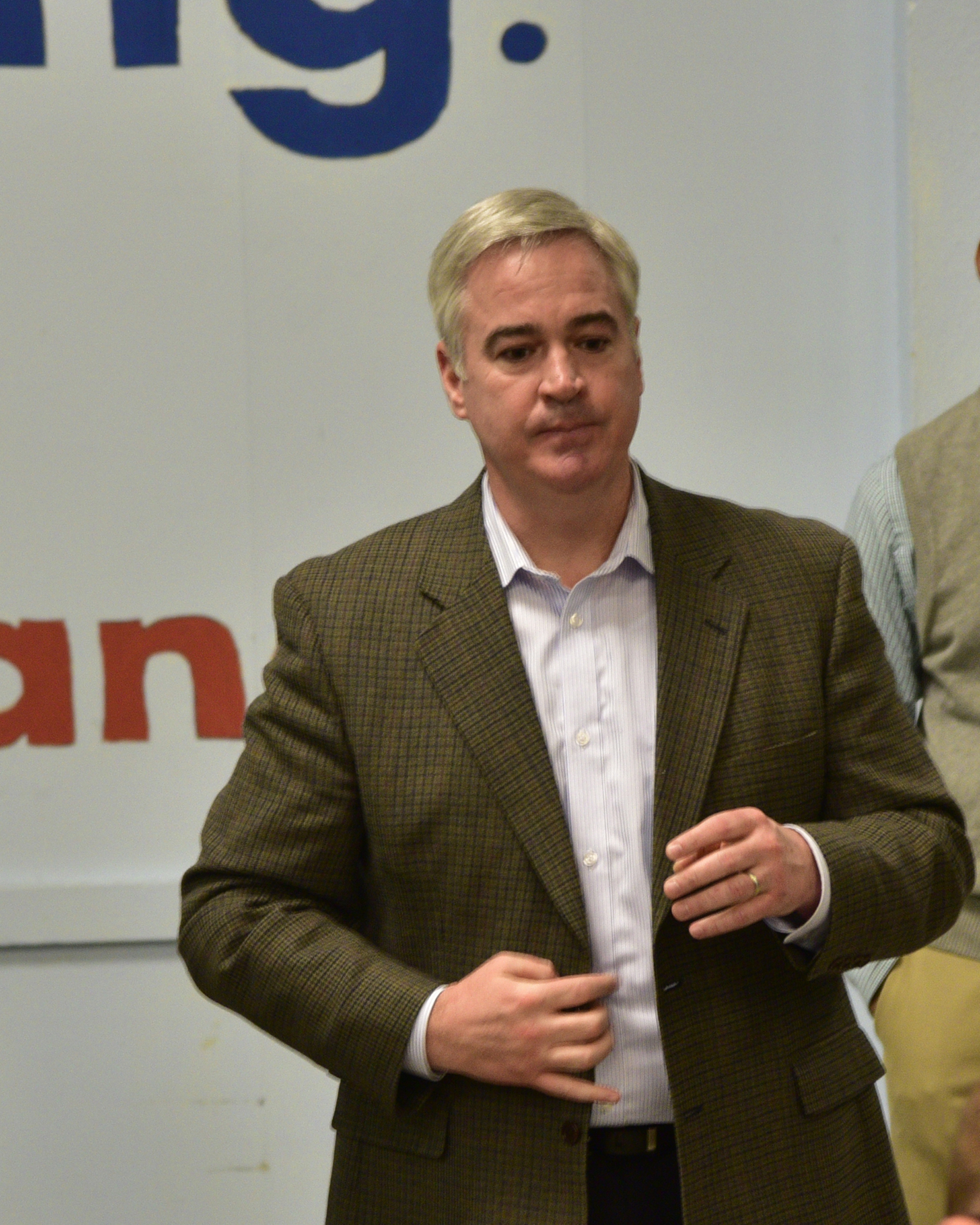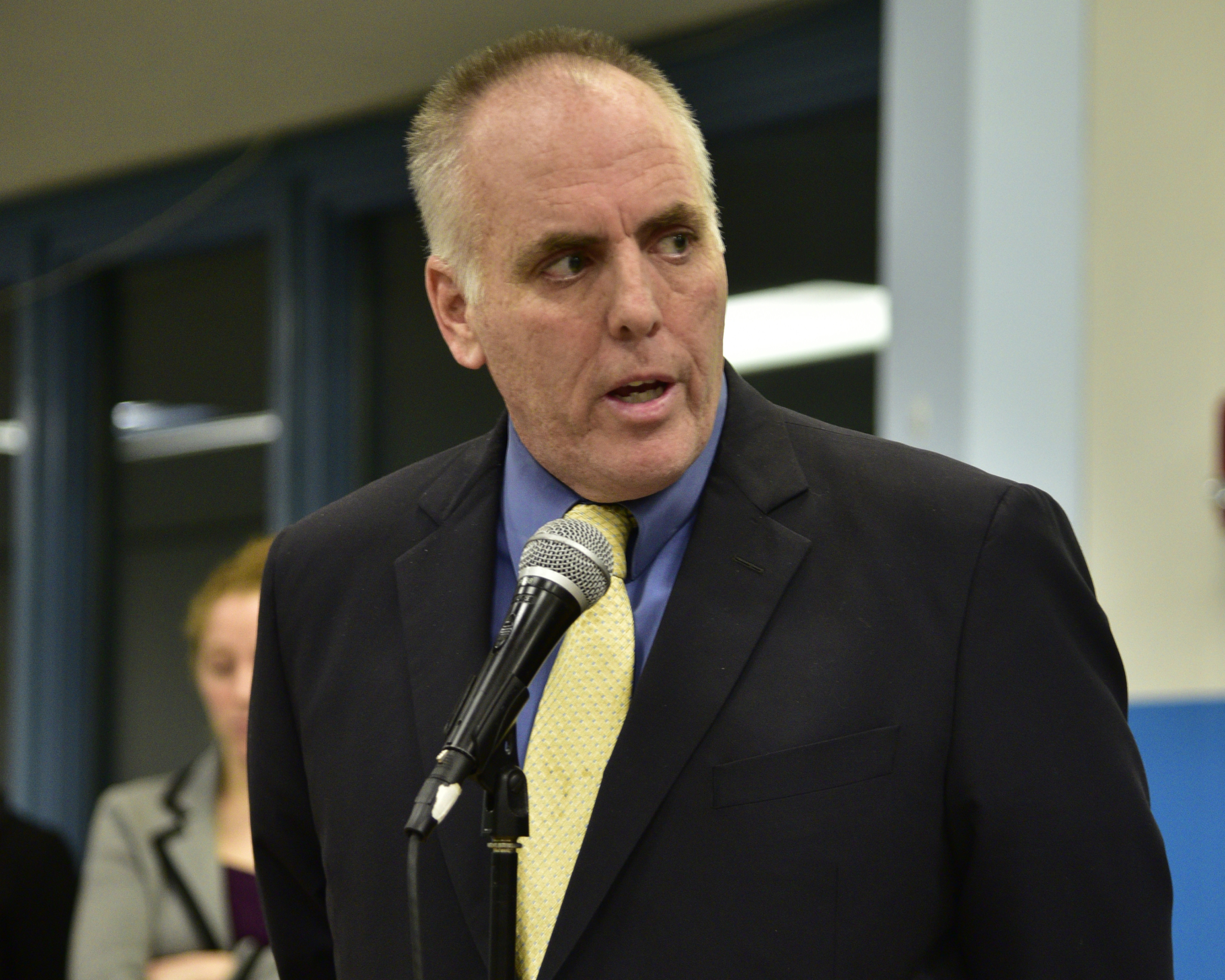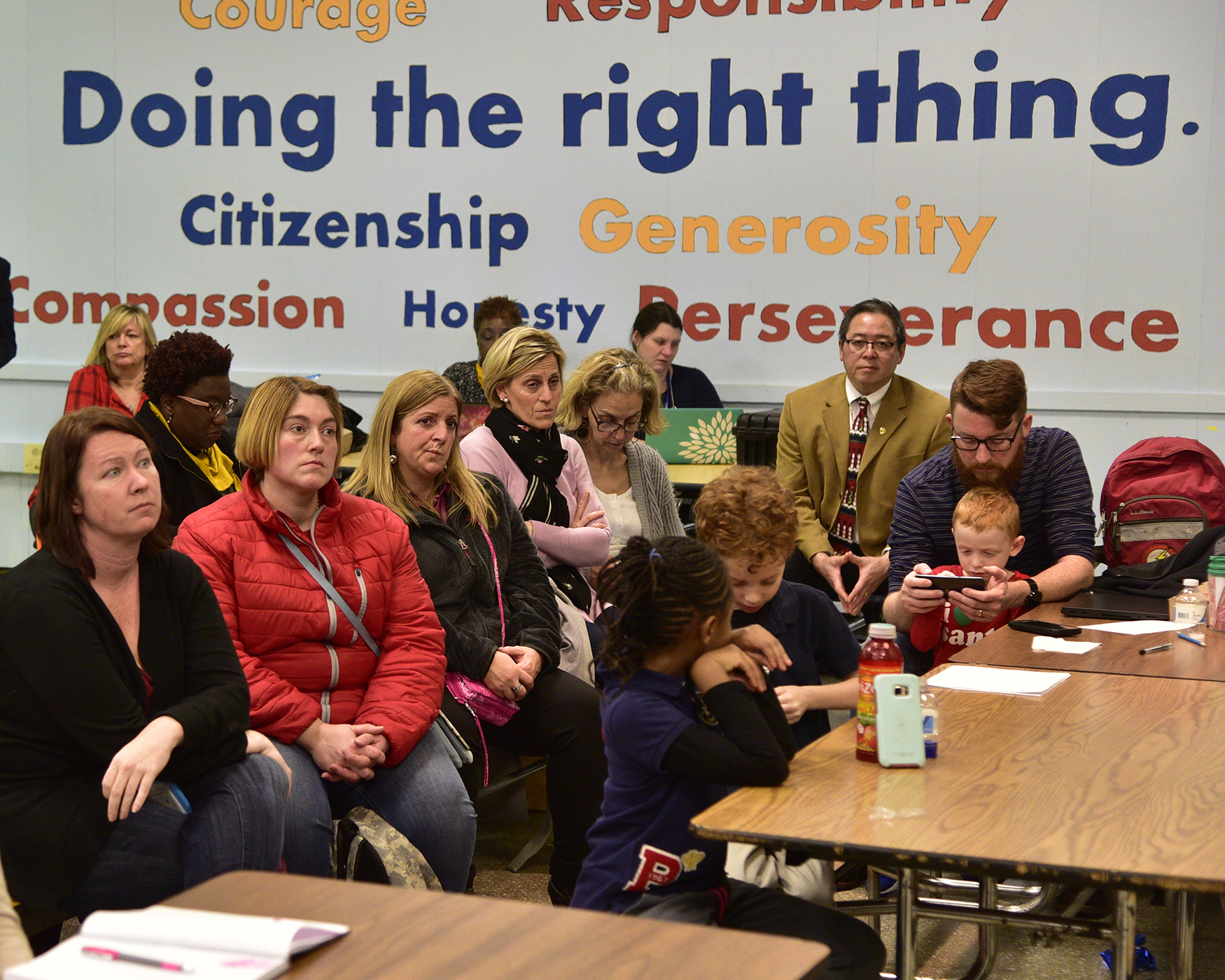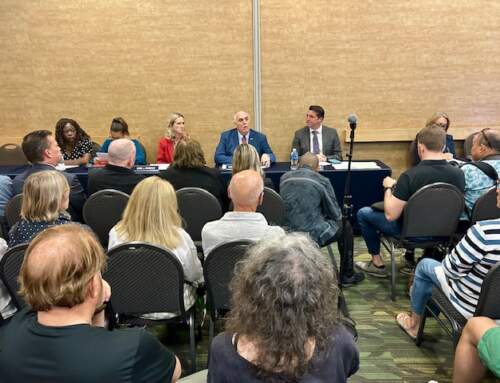Three Hour Meeting Held at Condon School
By Richard Campbell
Students and parents of the Boston Public Schools were activated into respectful protest Tuesday night at the Condon School in South Boston over the ham handed moves by the BPS Board’s to change start times for elementary and secondary students- seemingly with little regard to parent’s opposition to major aspects of the plan. The community at the Condon School was in unanimous agreement about the efficacy of changing times for students. Expressed in so many ways by many people the consensus was: “Please don’t do this, it will ruin our lives.”
While the decision to move older adolescent kids to later start times had a slightly better reception, the concept of completely disturbing the lives of younger students and their parents working schedules to accommodate transportation savings, was denounced for its lack of logistics and common sense. Both sets of plans unevenly applied according to a computer algorithm created by researchers at MIT seemed to present particular hardship for working parents, and special needs children. For the younger students who would have to wake up at 5 or 6 am to meet the bell by 7:15 am- and then be dismissed early without adequate after school care while waiting for their parents to get off of work, the model seemed reckless.
In the case of the adolescent model, the BPS Board had pretty solid research ground to stand on despite their ambivalence about the exact ages, and presented its case with links from their website to major academic and governmental studies that touted the positive effects of the later start times for a host of physiological reasons that are pretty obvious. From the American Medical Association, to the American Academy of Pediatrics, to the American Psychological Association, all the studies point to moving the older cohort times as a resolution to sleep deprived teenager syndrome.
But curiously, as many parents expressed, the BPS didn’t provide much evidence that earlier wake times for younger developing children is beneficial. Perhaps because, as one official admitted, there is not a preponderance of evidence of the positive effects on little children for very early awakening. Parents cannot be blamed for thinking that change is more a matter of economic convenience on the part of the school board. This sentiment was expressed in many forms: as parents complained the BPS seemed to be more concerned about saving money with a grand scheme. On the far side of the community room there was a bulletin board that ironically proclaimed: “Doing the right thing.”
Ed Lee, Superintendent of Operations opened the meeting by introducing the other city school officials in attendance: Johnathan Landman, Instructional Superintendent; Dr. Charles Grandson, Deputy Director of Operations; and Janice Manfredi, Director of Expanded Learning. Mr. Grandson, who took on the mantle of managing the meeting and attempting to answer most questions, seemed to be working from a prepared script about the difficulty of making the whole three-tiered transportation system. He introduced the concept that cost savings in transportation would be channeled back directly into the classrooms, thus improving the quality of education. He expressed the idea that the purpose of the meetings was to get community opinion and feedback to use to take particular actions. This reporter can assure you, the first part certainly happened.
City Councilman Michael Flaherty expressed his concern early on that the times were decided without full community input, that communications were poor, and that the program changes should be reconsidered by the BPS. Ed Flynn also expressed his opposition to the plan, respectfully asking that the school department delay action until the community has ample time to evaluate the programs. You know something is rotten in Denmark when two city officials arrive on cue to oppose the operations.
Things really started to fall apart for the school officials when a clever second grade boy stood up in front of the crowd and made a rather eloquent statement detailing his morning routine with precision, and told the officials if his school arrival time changed to 7:15, unless he woke up really early, he wouldn’t have the time to get prepared properly for the day. One parent followed with the comment that this “drastic change is borderline foolish”, other parents complained about the total lack of communication, where different officials gave conflicting answers to the same questions.
While some parents focused upon common sense issues like how lunch times and other scheduled events throughout the day will be all happening too early, or how some kids would have to stay at school for hours waiting for their parents to get home from work, others tried to pin the officials down on the non-existent data supporting younger children changes. In fairness to the officials, it looks like the system they have is inordinately complex- too complex to work efficiently. Dr. Grandson tried to explain that they wanted to create a system that worked the best for the largest number of people, and that they couldn’t make a system in which everyone was happy. It wasn’t long before someone asked him exactly who was happy- particularly with the city making these announcements in the middle of the holiday season.
When one considers that each day 646 school buses run in Boston, serving 231 schools, and 25,000 students are transported and 44, 973 miles are driven, you begin to see the problem. Attempting to use science is very instructive. The only problem for those clever folks at MIT is that algorithms don’t eat breakfast, take baths, sleep, study and play, pay attention in class all day, go to afterschool activities, or have to get home safely. Parents and children who have lived with the ultra-early start times in the past didn’t say good things about it. When you add other sociological concepts like equity analysis– that might motivate the planners to shift the burdens around from one group to another- the data starts to get in a war-not merely probability- but human emotions. One parent gave it a pretty cogent analysis saying the BPS was too obsessed with “quantitative data”, and not concerned enough about “qualitative data. Another parent expressed it a little more vehemently: “All you are doing is hurting little kids.”
